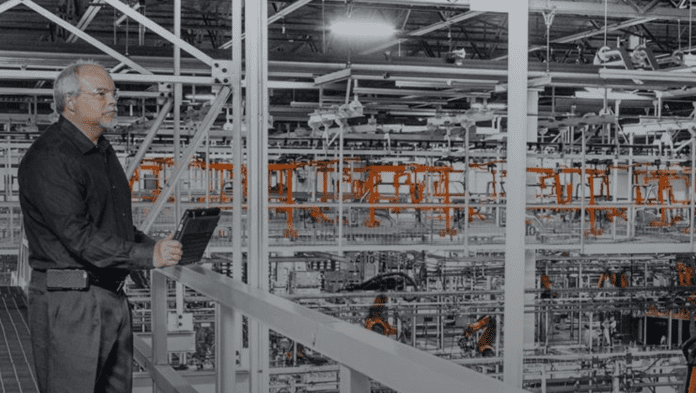Bringing digital transformation to the manufacturing sector is a main goal of the partnership
Manufacturing is a major economic driver in Germany, and, as such, the sector is drawing considerable federal investment under the auspices of Industry 4.0, a national plan to digitally transform manufacturing. In addition to government investment, stakeholders both inside and outside Germany are working to support Industry 4.0 goals.
German software powerhouse SAP, in support of manufacturing automation, has partnered with compatriot KUKA, which manufactures industrial robots for use in increasingly digitized, automated factory environments. During the recent Hannover Messe exhibition, the two companies announced a joint focus on “manufacturing, mechanical engineering and the automotive sector,” another major German economic engine.
Specifically, SAP will provide applications for KUKA robots within its internet of things platform, SAP Leonardo, as well as robotics integration into SAP’s cloud computing platform. In terms of use cases, the companies called out predictive maintenance and factory monitoring. Similarly, KUKA plans to integrate some SAP software tools into its proprietary IoT platform, called connyun.
SAP EVP of IoT and Digital Supply Chain Tanja Rueckert said the partnership with KUKA will help “make a significant contribution to driving closer the integration of top floor and shop floor in manufacturing. This enables customers to build a high level of customer satisfaction and support them on their way to digital transformation.”
KUKA Chief Digital Officer Christian Schloegel focused on the two-way nature of the partnership. “We are tying the KUKA robots on the SAP Cloud Platform and SAP Leonardo IoT platform. At the same time, the connyun Industry 4.0 platform…will be supplemented with SAP technology components and SAP business applications. In this way, we can optimally adjust all customer requirements and support our customers in their digital transformation.”
SAP recently announced its Q1 earnings, which includes 49% growth in new cloud bookings, a 13% increase in software revenue and a 16% increase in operating cash flow.

